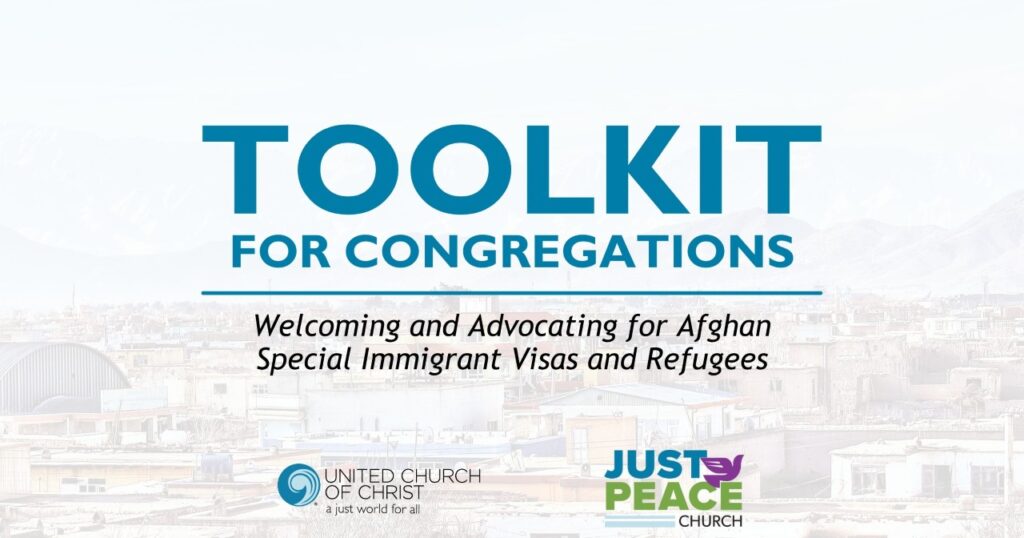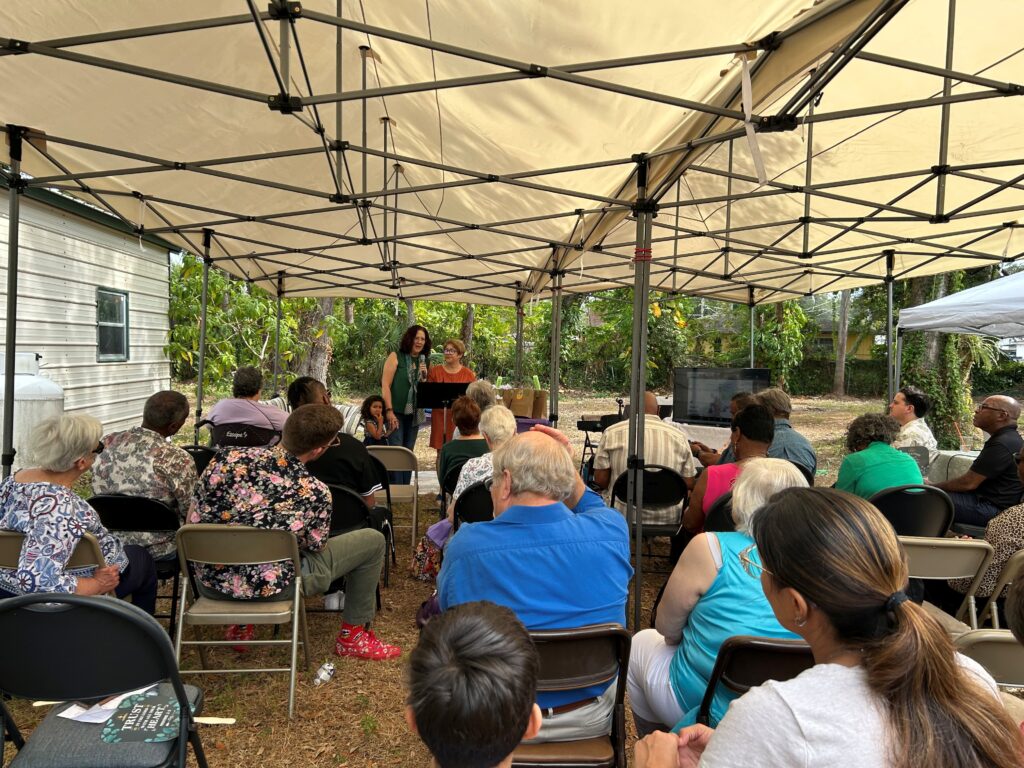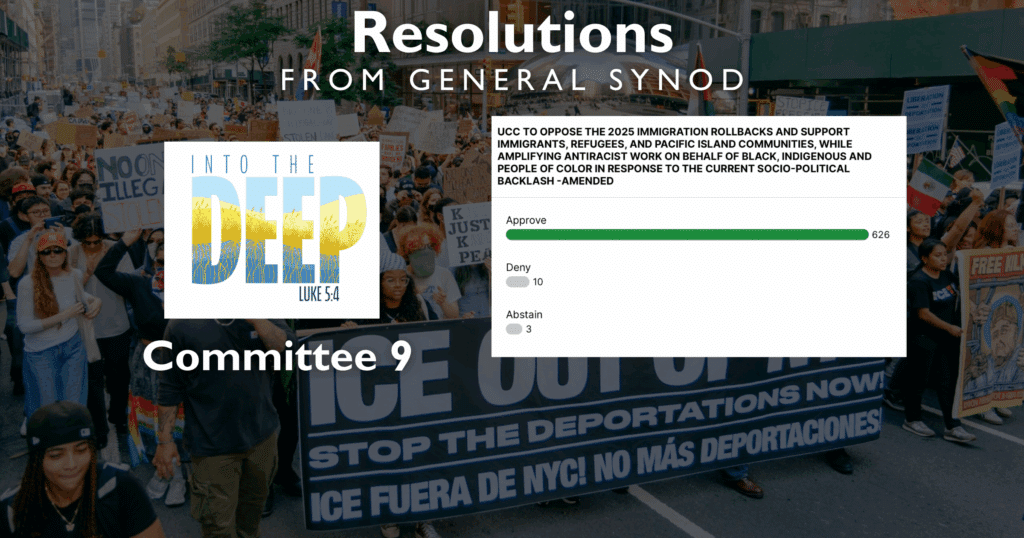Welcoming and advocating for Afghan SIVs and refugees: a toolkit
September 11 webinar on welcoming Afghan SIVs
This document also is available as a Word download: Welcoming and Advocating for Afghan SIVs and Refugees: A Toolkit

Right now, the United States is stepping up resettlement of Afghan interpreters and others who helped U.S. forces in the 20-year effort to defeat the Taliban.
As the Taliban now takes control of Afghanistan and U.S. military and diplomatic personnel pull out, the U.S. Office of Refugee Resettlement is anticipating a sudden and rapid increase in the arrival of Afghan “SIVs” – Special Immigrant Visa holders and their families – to U.S. shores.
These SIVs assisted U.S. operations in their country at extreme personal risk to themselves and their families. In return, they were promised emergency refugee status on U.S. soil.
As a denomination committed to welcoming the stranger and loving our neighbors, the United Church of Christ and its congregations are once again under a special call, in this case to welcome Afghan SIVs and to advocate for them and other Afghan refugees.
This toolkit is offered to help congregations discern their particular call at this critical time.
Step 1: Enter a process of discernment in your congregation.
Please read the document “Becoming an Immigrant Welcoming Congregation”: (ucc-immigrant-welcoming-congregation-2018.pdf (uccfiles.com). It includes a guide to navigating this conversation in your church, including theological discernment and grounding in UCC pronouncements and resolutions.
The United Church of Christ has a deep history of commitment to welcoming the stranger and loving our neighbor. Moreover, the UCC excels in forming loving ecumenical and multi-faith relationships that seek to bring wholeness to a broken world.
Step 2: Research the context of Afghanistan and its people.
Learn specifically about the conflict in Afghanistan, the culture and history of the Afghan people, and experiences of SIV migrants coming to the United States. Afghan SIVs may need anything from housing, to transportation to get vital documents such as ID cards and government benefits, to navigating their host neighborhoods and culture.
One common problem that is somewhat unique to SIVs concerns job placement. This unique population arrives with proficient English and, often, college-level education and well-paying careers.
Afghan SIVs in particular could benefit from professionals in your congregation who are willing to act as coaches to help them accomplish their career goals in the USA. To learn more about qualifications and process for this refugee category, please visit the USCIS website: Special Immigrant Visas (SIVs) for Iraqi and Afghan Translators/Interpreters (state.gov)
Step 3: Find out what the specific needs are in your area.
The U.S. Office of Refugee Resettlement coordinates refugee resettlement so that families and communities stay connected. This means that certain cities receive higher numbers of Afghan SIVs than others.
The city with the highest level of resettlement and thus the greatest needs at this time is Sacramento, Calif., followed by Dallas, Texas. The resettlement offices in both these cities specifically need temporary or permanent housing for incoming Afghan families.
Afghan communities are also typically resettled in Seattle, Atlanta, Boston, New York, Philadelphia and Chicago (This is not an exhaustive list.) If you live in one of these cities, please consider sponsoring an Afghan family by helping them transition into life in the United States.
Even if you do not live in an area that resettles Afghan SIVs, see the steps “advocacy” and “giving” for how you can help.
Step 4: Form a committee to compile your resources.
Have a conversation in your church about what resources and skills you may have to offer incoming Afghan refugees, such as temporary shelter, financial sponsorship, job training, cultural acclimation, obtaining driver’s licenses, helping find schools for their children and get them registered, etc.
Your educational curriculum should include providing safe boundaries for engagement, including the line between providing community and respecting a family’s privacy. Envision together how much time you can reasonably spend on this project and how many people you want to involve.
If you discern together that you don’t have the call or capacity to sponsor a family directly, you can explore the possibility of partnering with other local congregations or organizations, as well as engage advocacy efforts (see “advocacy,” step 6); or tap into financial resources that you can offer to direct service providers (see “giving,” step 7).
A comprehensive guide, including a range of ideas for engagement, can be found here: Microsoft Word – Refugees Welcome Toolkit_5.12.16.docx (interfaithimmigration.org)
Step 5: Contact your local refugee office.
Once your congregation has collected sufficient resources and information, contact your local refugee office. This map from the federal Office of Refugee Resettlement (Find Resources and Contacts in Your State | The Administration for Children and Families (hhs.gov) can help you find what refugee offices are in your area.
When you call, ask for the volunteer coordinator or, if there’s none, for the resettlement case manager. Share what you’ve done to prepare your congregation to assist an SIV family. Clarify the specific resources you can offer.
Be flexible. It may be that the refugee office has different needs than what you planned for. For example, it might need help getting a Somali family to understand bus routes, not help with Afghan SIVs.
However, it’s still important to educate and prepare so as not to unintentionally burden the resettlement staff with unprepared volunteers.
Step 6: Advocacy.
Advocacy is a critical part of what we can do to leverage our resources and voices on behalf of immigrants and refugees. Whether or not you live near a refugee resettlement office, you can advocate with your members of Congress to expand refugee admissions to vulnerable Afghans beyond the SIV criteria. Please visit the UCC’s latest action alert for the Afghan refugee crisis here: (https://p2a.co/FbTo63R). For additional information on how to engage in advocacy, be in touch with staff in our Global H.O.P.E Office and UCC office in Washington D.C.
Step 7: Giving.
Financial support is always welcome in the world of refugee resettlement. Take a special offering, solicit individual donations, and/or hold a fundraiser. Support your local resettlement agency, or give to the One Great Hour of Sharing Refugee Emergency Fund and your designated donation will be routed to the UCC’s Refugee and Migration Services Program, which in turn will utilize your donation to bolster refugee programs throughout our denomination and with our partners.
Thank you!
We at Global H.O.P.E., part of the UCC’s Wider Church Ministries, thank you for your dedication to building justice and peace in our world to reflect Christ’s vision of the Kingdom of Heaven.
Together, we can make a difference in the lives of refugees and migrants, as well as influence the ways that we stand in relationship to our global commitments.
Please contact Irene Hassan (see below) for further questions or concerns. God bless you and guide you in your ministries.
Irene Willis Hassan, MDiv, Minister for Refugee and Migration Ministries, Global H.O.P.E., UCC Wider Church Ministries, 700 Prospect Ave East | Cleveland, OH 44115-1100; 216.736.2135 | hassani@ucc.org | UCC.org
Related News
Operation Cacti: Compassionate Care for Children
As Immigration and Customs Enforcement (ICE) agents make devastating sweeps through cities and...
Read MoreIntroducing Megan: UCC’s New Minister for Refugee and Migration Services
The United Church of Christ is pleased to welcome Megan as the new Minister for Refugee and...
Read MoreResolution Opposing Immigration Policies Passes
Delegates to General Synod 35 overwhelmingly approved an emergency resolution that opposes...
Read More
